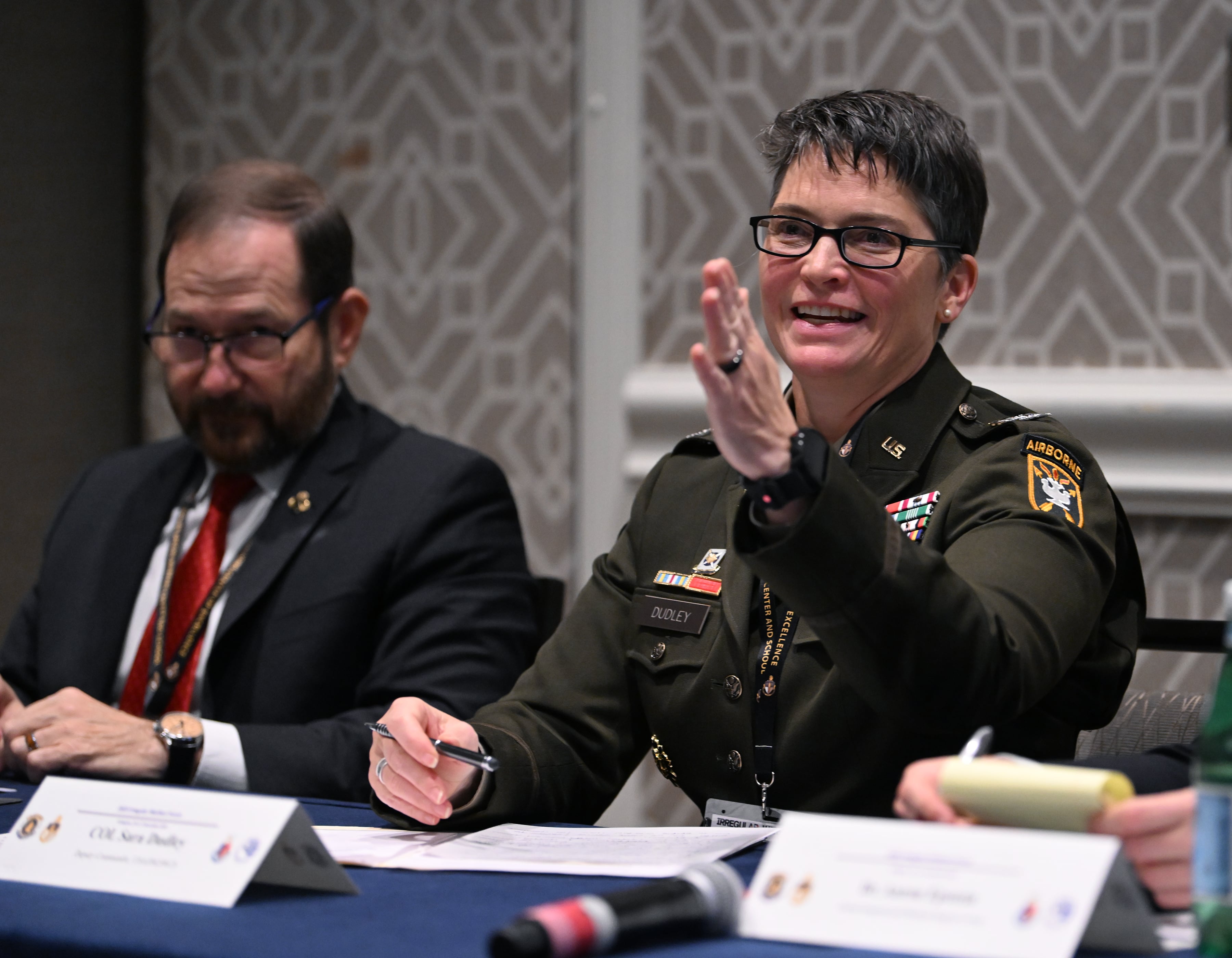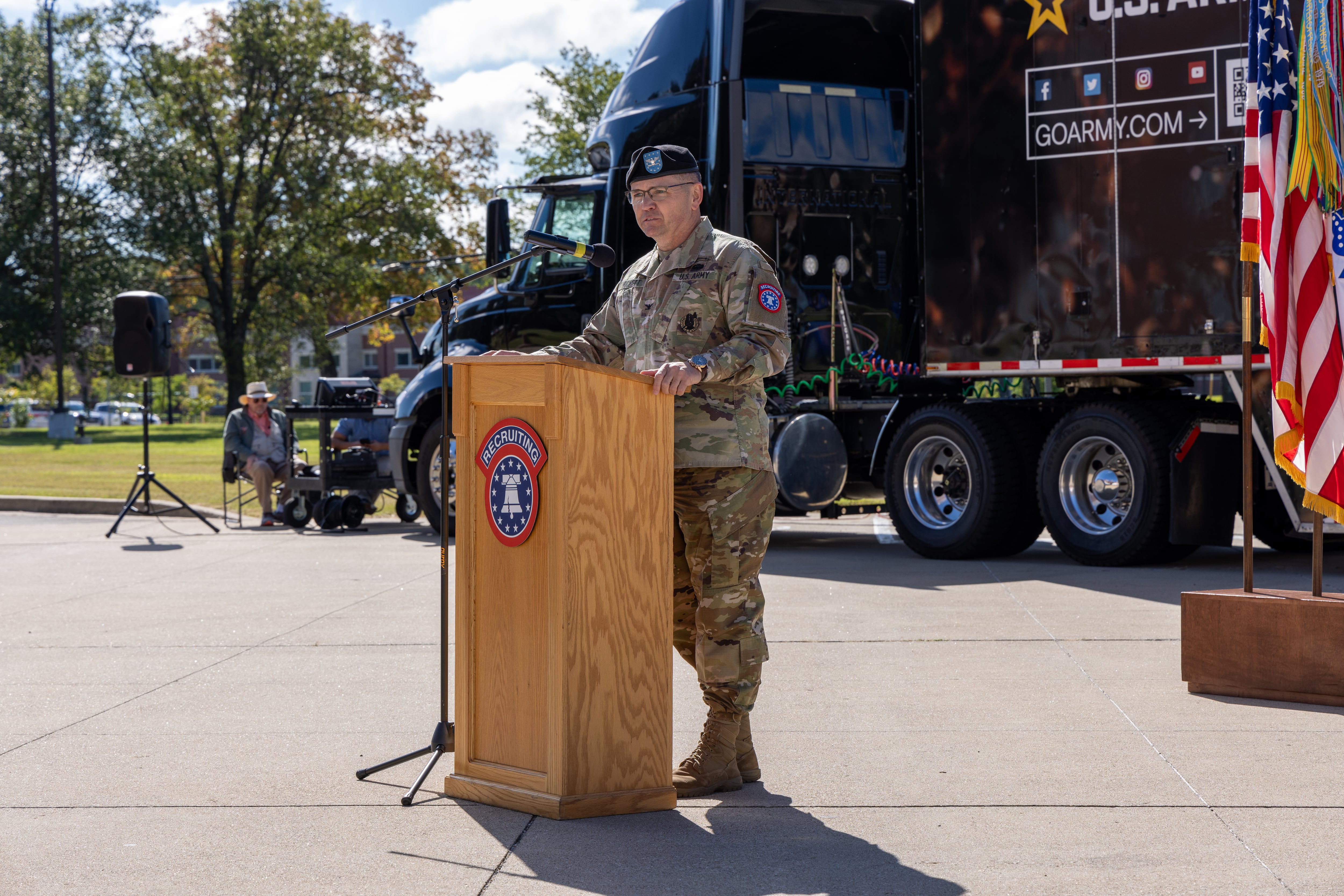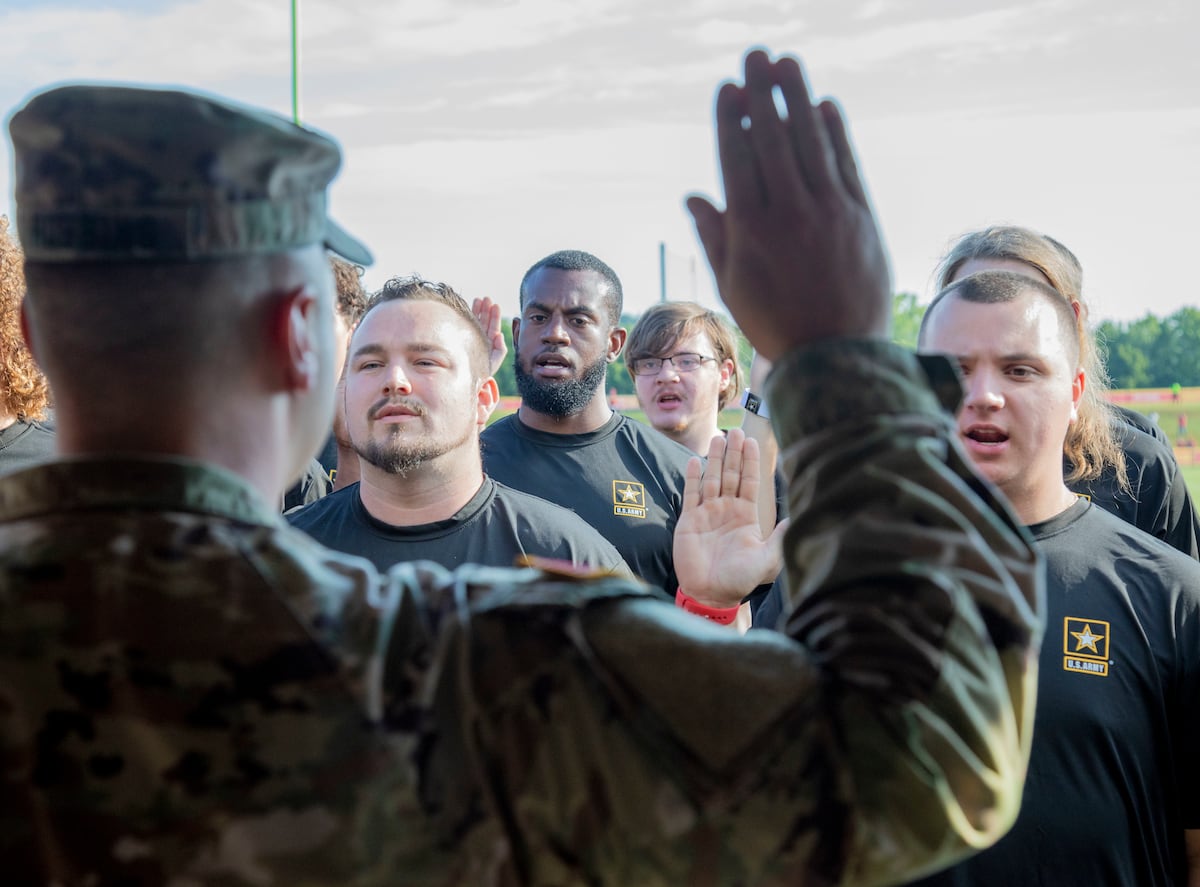As the Army overhauls its recruiting structure, jobs and approaches to bringing in new talent, the service is injecting resources into areas that have previously been underserved — cities.
That’s one of a host of reasons that the Army Recruiting Command will soon post a one-star general in both Los Angeles, California, and Atlanta, Georgia, in the coming months.
Brig. Gen. Sara Dudley and Brig. Gen. Fred Hockett Jr. will bring their recruiting management skills to Atlanta and Los Angeles, respectively, starting in early 2025. Dudley currently serves as the deputy commanding general of operations at U.S. Army Recruiting Command, while Hockett serves as the command’s deputy commanding general for support.
The Atlanta office is expected to oversee recruiting efforts for the eastern half of the country. Los Angeles office will be the service’s recruiting hub for the nation’s western half.
RELATED
Dudley told Army Times recently, following an overarching analysis of the Army’s recruiting approach, that the service found its recruiting efforts were too “centrally located in the United States.”
This shift, officials hope, will amplify support for recruiters by connecting them with community leaders and groups, such as mayors, school board members, business owners and others who might help the Army better connect with local communities.
“It’s a very complex mix of why people think that we don’t reach them,” Dudley said. “I think one of them is we don’t have the presence, and we don’t have the kind of tailored strategy having been around those areas that they can hear and then see themselves in.”

While much of the two generals’ work will not be seen by recruiters on a daily basis, both Dudley and Hockett said that over time their efforts should open more doors for those tasked with bringing in future talent.
“At the end of this I would want to hand off really solid relationships that exist between institutions or between communities and the Army,” Dudley said.
The service, meanwhile, met its recruiting mission for the first time in two years in fiscal year 2024, which ended in September. But the Army isn’t settling.
Army Secretary Christine Wormuth announced in early October at the Association of the U.S. Army’s annual conference that after meeting the service’s goal of bringing 55,000 new soldiers into the ranks, Army officials are eyeing a target of 61,000 new recruits in fiscal 2025.
“This goal is ambitious, but we believe it is achievable,” she said.
To help those future efforts, each one-star will be aided by about 30 staffers in their respective geographic areas. The concept is still being developed but is expected to be fully operational by 2026, officials said.
“What we’re really looking to get by having these headquarters in place [is] additional access to high schools that may be hard to get to,” Hockett said, “[and] to talk with school districts, school boards, local community leaders.”
One area where recruiters must adapt, he added, is through perfecting their knowledge about the process of joining and serving in the Army.
“A potential applicant can order something on Amazon [and] track it from the time it leaves until it shows up on their doorstep,” Hockett said. “They know every single part of that.”
Similarly, recruiters must be able to explain, in detail, every step about the Army process.

Dudley, Hockett and their respective teams, however, see a challenging fight ahead as they work to hit their target.
Beginning in 2026, there will be a 10% drop in the number of service-eligible college-age civilians, due in part to consequences from the 2008 financial recession, which saw fewer births, researchers found.
Recruiters must also continue to battle a growing civilian-military divide, which has yielded fewer Americans serving in the military than at any point in modern history. Many civilians, in turn, have little connection to military service and remain unfamiliar with what it entails.
But those recruiters will have new tools and specialists to assist their efforts.
Beginning last year, the Army restructured its recruiting efforts by reorganizing its recruiting command and bumping it up from a two-star to a three-star headquarters.
The service will also be using an artificial intelligence tool being developed by Deloitte, a professional services provider, in five U.S. cities to help recruiters identify and target potential recruits.
Additionally, the Army in July graduated its first cohort of warrant officer recruiters from the new job’s training course.
These collective efforts will be further enhanced by the service’s tool for potential recruits who may be struggling to meet and maintain the physical and academic standards required to attend basic training.
The Future Solder Prep Course, which started as a pilot in 2022 at Fort Jackson, South Carolina, provides new recruits physical and academic support for up to 90 days to meet Army standards. The Army has seen 28,000 prep course attendees successfully go on to serve since the program’s inception, Army Times previously reported.
These initiatives, Hockett noted, go far beyond recruiters hitting numbers.
“The reason why soldiers should care is the soldiers we recruit are going to be fighting with them on their left and right,” Hockett said.
Todd South has written about crime, courts, government and the military for multiple publications since 2004 and was named a 2014 Pulitzer finalist for a co-written project on witness intimidation. Todd is a Marine veteran of the Iraq War.
Read the full article here








